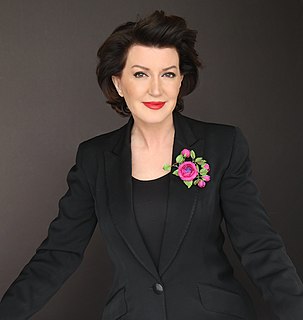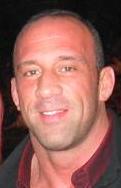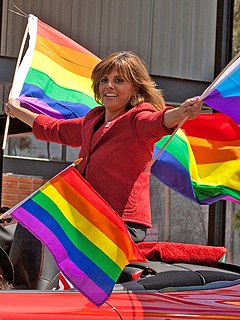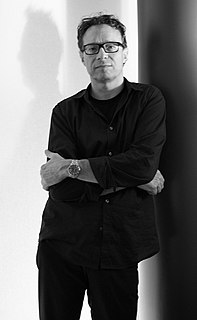A Quote by David Berman
We visual communicators have so much good to share: rather than sharing our chemical and style addictions, we could be using our professional skills to help communicate health information, conflict resolution, democracy, technology.
Related Quotes
Children know that if they have a question about the world, the library is the place to find the answer. And someone will always be there to help them find the answer-our librarians. (A librarian's) job is an important one. Our nation runs on the fuel of information and imagination that libraries provide. And they are in charge of collecting and sharing this information in a helpful way. Librarians inform the public, and by doing so, they strengthen our great democracy.
The human heart is the first home of democracy. It is where we embrace our questions: Can we be equitable? Can we be generous? Can we listen with our whole beings, not just our minds, and offer our attention rather than our opinion? And do we have enough resolve in our hearts to act courageously, relentlessly, without giving up, trusting our fellow citizens to join us in our determined pursuit-a living democracy?
I feel that every day, all of us now are being blasted by information design. It's being poured into our eyes through the Web, and we're all visualizers now; we're all demanding a visual aspect to our information. There's something almost quite magical about visual information. It's effortless; it literally pours in.
There are so many ways to help, by either sharing your skills or expertise, joining our board of directors or advisory boards, and donating. Regardless of what or how you share with ISF, we recognize that we don't have all the answers, and that solutions lie not in commonality but in diversity. Welcoming a broad range of thinkers, creators, and doers is what makes this organization thrive.
If the Europeans truly wish to improve their NATO contribution they can show it simply enough. They can establish professional armed forces, like those of the UK. And they can acquire more advanced technology. Indeed, unless that happens soon the gulf between the European and US capabilities will yawn so wide that it will not be possible to share the same battlefield. Alas, I do not think that sharing battlefields with our American friends - but rather disputing global primacy with them - is what European defence plans are truly about.
All of the insights that we might ever need have already been captured by others in books. The important question is this: In the last ninety days, with this treasure of information that could change our lives, our fortunes, our relationships, our health, our children and our careers for the better, how many books have we read?
Not enough of our society is trained how to understand and interpret quantitative information. This activity is a centerpiece of science literacy to which we should all strive-the future health, wealth, and security of our democracy depend on it. Until that is achieved, we are at risk of making under-informed decisions that affect ourselves, our communities, our country, and even the world.




































